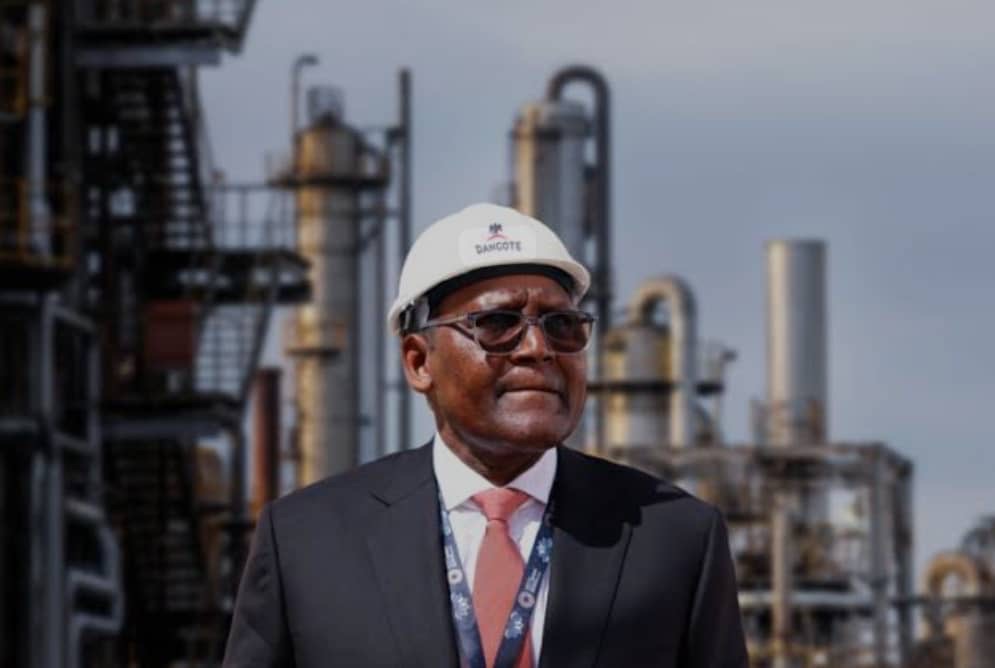By Ijiyode Oyin

Aliko Dangote, the President and CEO of Dangote Group, has alarmed the Federal Government to end fuel subsidies, arguing that the practice sucks Nigeria’s finances and distorts the true picture of fuel consumption in the country.
According to honourable fm, during an interview in New York on Monday, Dangote stressed that it is time for Nigerians to address the issue, which has cost trillions of naira.
The call comes as the Dangote Refinery recently began distributing petrol, with prices reaching N950 per litre in Lagos and over N1000 in the north. Dangote highlighted that the refinery’s local production would help provide clarity on Nigeria’s actual fuel usage and reduce the impact on foreign exchange.
“Subsidy is a very delicate issue,” Dangote said. “Once you are subsidising something then people will bloat the price and then the government will end up paying what they are not supposed to be paying. It is the right time to get rid of subsidies. But this refinery will sort a lot of issues out there, it will show the real consumption of Nigeria, because, you know, nobody can tell you. Some people say 60 million litres of gasoline per day. Some say, it’s less.”
Dangote highlights that his refinery would play a key role in purifying the oil distribution process, helping the government save significant amounts of money. “Everything can be accounted for, most of the trucks or ships that will come to load from us. We are going to put a tracker on them to be sure they are going to take the oil within Nigeria.”
The Nigerian economy has been struggling with inflation since the government removed the fuel subsidy in May 2023, shortly after President Bola Tinubu took office. The move caused inflation to rise to about 34 percent before slightly decreasing. Food inflation remains high at 40 percent, and the naira has lost about 70 percent of its value against the dollar.
Discussing how his refinery would cope with the government’s policy changes, Dangote noted, “We produce, we export, and when we produce, we sell locally. But we are a big private company. And yes, it’s true, we have to make a profit. We build something worth $20bn so definitely we have to make money.”
He explained the implications of subsidies on his business, stating, “The removal of subsidies is totally dependent on the government, not on us. We cannot change the price, but I think the government will have to give up something for something.”
Dangote also pointed out that reducing reliance on imports could help stabilize the naira. “Petroleum products consume about 40 percent of our foreign exchange,” he said. The Dangote Refinery began supplying gasoline domestically on September 15, marking a significant step toward increasingit Nigeria’s reliance on imported fuel and potentially easing pressures on the nation’s currency.
With crude oil sales expected to start in October, discussions between Dangote and the Nigerian National Petroleum Company Limited (NNPCL) are ongoing. Dangote remains confident that the agreement will benefit both his refinery and the broader Nigerian economy.